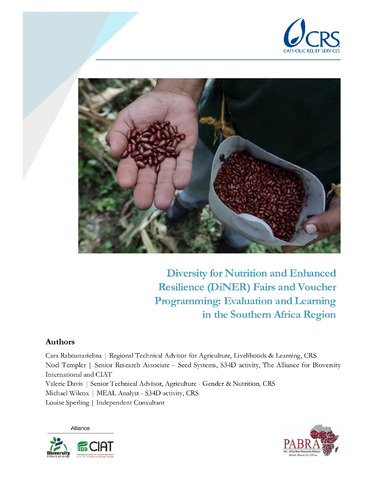Diversity for Nutrition and Enhanced Resilience (DiNER) Fairs and Voucher Programming: Evaluation and learning in the Southern Africa Region
In response to major shocks, governments and international humanitarian agencies often use direct seed distribution as a first level response to help communities stabilize or restart their farming systems. In contrast, CRS uses Seed and Voucher Fairs (S&VFs). After many years of successfully implementing S&VF, CRS developed a new type of seed fair that specifically focuses on the relief-development continuum and diversity, both in household dietary diversity for improved nutrition, and crop diversity for increased farming system resilience. This new approach, Diversity for Nutrition and Enhanced Resilience (DiNER) Fair, offers inputs such as a diverse mix of quality seed for multiple crops and varieties with an emphasis on those which might alleviate a current stress (e.g. drought or disease) or encourage better nutrition, as well as small livestock, fishing gear, agriculture technologies, and other inputs. DiNER Fairs can create a platform for establishing longer-term business relationships between farmers and seed suppliers. This study evaluates how the DiNER Fair approach improves participating households’ food and nutrition security as well as strengthen access to seed and other agricultural inputs at the last mile in Madagascar, Malawi, and Zimbabwe.

